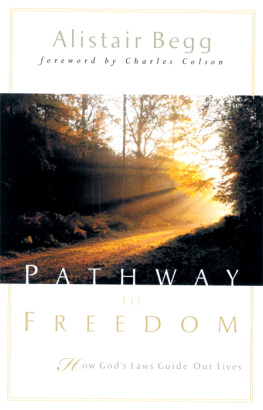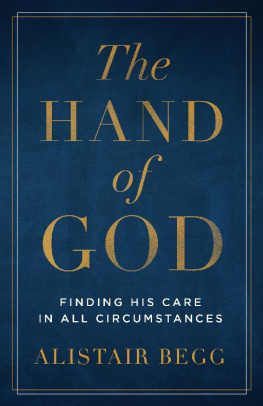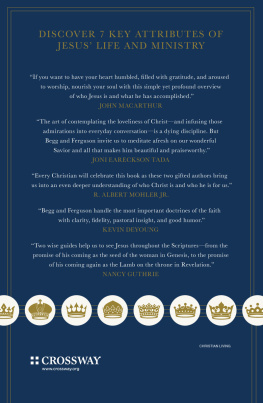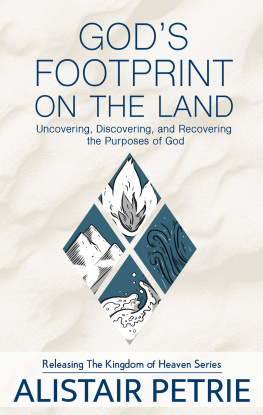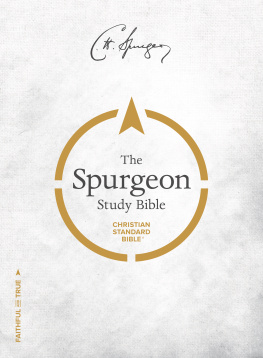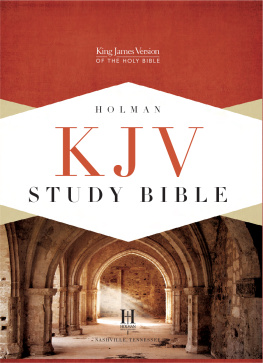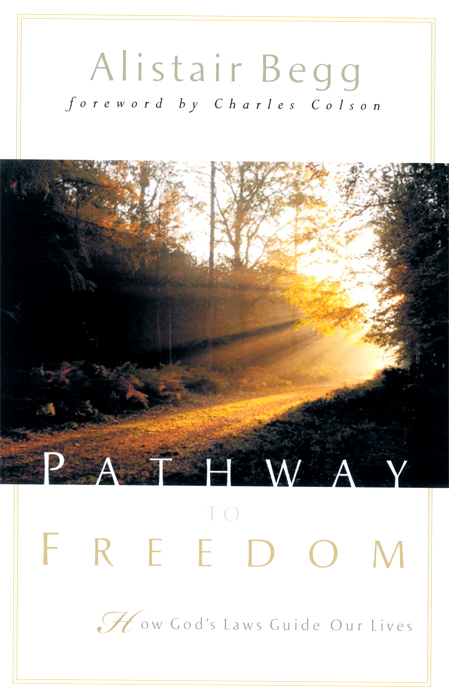P ATHWAY
TO
F REEDOM
H OW G ODS L AWS G UIDE O UR L IVES
Alistair Begg
M OODY P UBLISHERS
CHICAGO
2003 by
A LISTAIR B EGG
All rights reserved. No part of this book may be reproduced in any form without permission in writing from the publisher, except in the case of brief quotations embodied in critical articles or reviews.
All Scripture quotations, unless otherwise indicated, are taken from the Holy Bible, New International Version. NIV. Copyright 1973, 1978, 1984 by International Bible Society. Used by permission of Zondervan Publishing House. All rights reserved.
Scripture quotations marked NASB are taken from the New American Standard Bible, Copyright 1960, 1962, 1963, 1968, 1971, 1972, 1973, 1975, 1977, 1995 by The Lockman Foundation. Used by permission.
Scripture quotations marked NKJV are taken from the New King James Version. Copyright 1982 by Thomas Nelson, Inc. Used by permission. All rights reserved.
Scripture quotations marked KJV are taken from the King James Version.
Library of Congress Cataloging-in-Publication Data
Begg, Alistair.
Pathway to freedom : how Gods laws guide our lives / by Alistair Begg.
p. cm.
Includes bibliographical references.
ISBN 0-8024-1706-X
1. Ten commandments. 2. Christian life. I. Title.
BV4655.B384 2003
241.22--dc21
2002153829
1 3 5 7 9 10 8 6 4 2
Printed in the United States of America
To Cameron, Michelle, and Emily
These commandments are to be upon your hearts.
Deuteronomy 6:6
To see the law by Christ fulfilled,
And hear His pardoning voice,
Changes a slave into a child,
And duty into choice.
William Cowper
Love Constraining to Obedience

CONTENTS

FOREWORD
T his book addresses a subject of critical and urgent importance. This past summer the National Association of Scholars released the report of their survey of a random sample of graduating seniors about what they had learned in college about ethics and morals in the workplace.
Nearly all the respondents said that college had prepared them ethically for their professional lives. At the same time, three quarters reported that they had been taught that what is right and wrong depends on differences in individual values and cultural diversity. That is, they believe they are prepared ethically to live in a world where ethical behavior is purely circumstantial and can change from day to day.
Meanwhile, several years ago, their parents were polled and asked if they thought the Ten Commandments were relevant for living today. Two thirds of all Americans said they were and indeed they are; the Decalogue is the very foundation stone of Western law. Yet when asked to list the Ten Commandmentsso relevant for living todaymost people could not even name five. Dismal biblical ignorance.
We have entered into a time of moral crisis in our culture and the sad fact is that we have entered into a time of moral crisis in the church as well. Stories and statistics about divorce, adultery, lying, and the individualized picking and choosing of doctrines abound.
Into our confused world and church, one of the most gifted communicators I know, Alistair Begg, brings the one message which can give us order, direction, and hope. For the reader, he brings to life in the most readable way, Gods commands, which God Himself wrote on the tablets Moses delivered to the covenant people.
Drawing on the Scriptures along with Puritan and other rich sources, Begg carefully helps the reader avoid the two great dangers associated with the Ten Commandments: legalism and license. He points out to the legalist that obedience to the Commandments is not the source of our justification or our sanctification. God does not love us more if we obey the Commandments and less if we do not. His love for us, our justification, our sanctification, and our final glorification were settled once and for all by the perfect faithfulness of Christ on the cross, not day by day by our grossly deficient faithfulness. Legalism is thus ruled out.
He goes on to point out the dangers of license, of ignoring the Commandments. After all some argue, we are beyond the lawbeyond the Ten Commandments. Jesus commanded us to love God and love our neighbors. Isnt that enough? Hardly. Our sinful nature easily twists love into any shape that seems convenient to us at the time. And it is here that we desperately need moral direction from God, which He gives us in the Ten Commandments.
The Ten Commandments spell out what love for God and our neighbor looks like. The content of our love for God and neighbor is not for us to decide. We are too sinful, too selfish, and too foolish to make our own decisions about these matters. Without divine holiness, love, and wisdom we will go wrong, and the Holy Spirit, who superintended the writing of the Scriptures, uses the Ten Commandments to guide us.
This book had its genesis in a series of sermons about the Ten Commandments delivered to the congregation at Parkside Church where Alistair Begg serves as the much loved and respected senior minister. Though rich in exegetical insight and theological depth, this is not a book of exegesis or theology. While thoroughly scholarly, the book reflects the heart of its author. Alistair Begg is above all a pastor and a preacherand a great one. As a result, this is a practical book for Christians who, out of love for the God who has saved us, sincerely want to walk in His ways and live out His will out of love for Him and our neighbors.
Pathway to Freedom is forthright and necessary teaching that todays church cannot afford to ignore. How now shall we live? The beginning of the answer must be: in obedience to Gods moral law summarized in the Ten Commandments.
Charles W. Colson
Prison Fellowship Ministries
Washington, D.C.

PREFACE
W hen I preached a series of sermons on the Ten Commandments at Parkside Church in the fall of 1993, the response of the congregation was one of what might be called intrigued affirmation. They were, I think, largely caught off guard by an approach to the Moral Law which underscored its permanent validity in living the Christian life. For some, these commandments had never been considered since religion classes at parochial school. Others, brought up on an earlier diet of dispensationalism, had been taught that the Law belonged to another place and time and consequently had no pressing relevance. There were those whose political concerns caused them to be agitated by the removal of the Ten Commandments from public display. They were certain about the civil or political use of the Law but at the same time were at best confused about its function in their personal lives. In the goodness of God, by the time the series concluded, each of us in the congregation had a new appreciation for the words of the psalmist: The law of the LORD is perfect, reviving the soul. The statutes of the LORD are trustworthy, making wise the simple. By them is your servant warned; in keeping them there is great reward (Psalm 19:7, 11, italics added).

